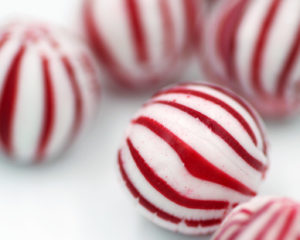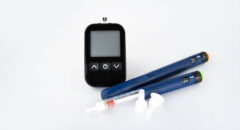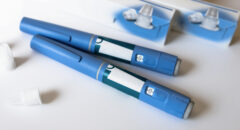
If you have diabetes, the holiday season can be a time of great trepidation. If I eat cake, what will happen to my blood sugar? Will I gain weight? Can I eat just one piece of sweet potato pie and stop? Totally exacerbated, you throw your hands up and decide, "I just won’t eat anything!"
But it doesn’t have to be that way. Having diabetes doesn’t mean you have to deprive yourself of taste and flavor. There are plenty of sweet foods out there that don’t actually have sugar in them. These are foods made with low or zero-calorie sweeteners—also known as nonnutritive sweeteners.
They provide practically no calories and won’t increase your blood sugar levels. There are lots of them on the market these days—in prepared foods, in food and drink mixes, and packaged to be added to food like sugar.
The FDA and other health-related organizations agree low or zero-calorie sweeteners are safe for people with diabetes.
“The Academy of Nutrition and Dietetics [the Academy] position paper on sweeteners advises people can safely consume nonnutritive or nutritive sweeteners when they are part of a healthy eating plan,” says Toby Smithson, MS, RDN, LD, CDE, coauthor of Diabetes Meal Planning and Nutrition for Dummies.
Furthermore, the American Heart Association, American Diabetes Association (ADA), and Academy agree that low-calorie sweeteners can help people with diabetes achieve blood sugar control.
Low-calorie or zero-calorie sweeteners also make it easy for you to enjoy sweet foods and drinks. Common low-calorie sweeteners and their brand names include:
-Acesulfame K - Sunett® and Sweet One®
-Aspartame - Nutrasweet®, Equal®, and Sugar Twin®
-Luo Han Guo extract - Nectresse® Monk Fruit in the Raw® PureLo®
-Neotame - Newtame®
-Stevia - Truvia® PureVia® Enliten®
-Saccharin - Sweet and Low®, Sweet Twin®, Sweet'N Low®, and Necta Sweet®
-Sucralose - Splenda®
-Allulose - DOLCIA PRIMA®
Personal preference, taste, metabolic goals, and functionality are key factors in determining which sweetener is best for the person with diabetes.
When it comes to functionality, Smithson, a Diabetes Lifestyle Expert, says not all sweeteners are the same. “Aspartame cannot be used for baking because it is not heat-stable, but saccharin, acesulfame K, sucralose, and stevia can be used in baking. Also worthy of note is that your baked products may have a different volume because low-calorie sweeteners don’t have the same bulk as sugar.” Allulose is the exception. “Unlike other low-calorie sweeteners, allulose provides the bulk, taste, and texture of sugar,” says Smithson.
Although low-calorie or zero-calorie sweeteners have the benefit of not affecting your blood sugar, you don't have to use them in great quantities—or at all. Small amounts of sweets can be included in a healthy diet—even if you have diabetes. Keep the amount of sweets and desserts within your carbohydrate allowance by substituting sweets and desserts for starch, fruit, or milk in your diet.
Don’t let diabetes take the sweetness out of your holidays. Work with your diabetes educator to determine which sweetener is best for you. Learn more about low-calorie and zero-calorie sweeteners at the Calorie Control Council.

Constance Brown-Riggs, is a registered dietitian, certified diabetes educator, national speaker and author of the Diabetes Guide to Enjoying Foods of the World, a convenient guide to help people with diabetes enjoy all the flavors of the world while still following a healthy meal plan. Follow Constance on social media @eatingsoulfully








